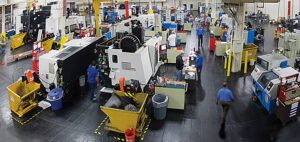Navigating Supply Chain Challenges: The Strategic Importance of Diversified Sourcing
In the dynamic world of manufacturing and supply chains, MESH Works, a leading company based in Columbus, Ohio, recognizes the profound shifts and challenges in global sourcing today. One of the most pressing issues is the stark contrast in the number of factories between North America and Eastern countries, which significantly impacts supply chains as global demand continues to surge.
The Factory Imbalance: North America vs. Asia
Eastern countries, particularly countries like China, India, and Southeast Asian nations, have long been the world’s manufacturing powerhouses. The region’s vast network of factories and industrial hubs outstrips that of North America by a considerable margin. This discrepancy has historical roots in labor cost differences, regulatory environments, and economic policies that have made these countries an attractive destination for manufacturing investments.
However, this imbalance creates substantial challenges. As demand for goods continues to grow & supply chain capacities are challenged, the limited number of factories in North America struggles to keep pace, leading to supply bottlenecks and increased competition for production slots. This competition is often won by the wealthiest companies, who can afford to secure space and resources, leaving smaller and mid-sized businesses scrambling.
The Impact on Supply Chains
For companies operating in North America, this imbalance means relying solely on local manufacturing, which is increasingly ugly and unsustainable. The intense competition for factory space drives up costs, can lead to delays, and ultimately impacts a company’s ability to meet market demands efficiently. This situation is exacerbated by global events, such as the COVID-19 pandemic, which highlighted vulnerabilities in supply chains and the risks of over-reliance on a single region. Since the pandemic and other environmental and human challenges, the industry has resorted to nearshoring.
In response to these challenges, many companies are reevaluating their sourcing strategies. Mexico, with its proximity to the U.S., has emerged as a critical player in this new landscape. The benefits of nearshoring to Mexico include having access to a skilled talent pool and being able to reduce labor and transportation costs. However, while Mexico is a key part of the solution, it is not always feasible for some buyers. In most cases, some level of global sourcing is needed. The following section explores what the benefits of global sourcing may entail.
The Need for Diversification
To build resilient and flexible supply chains, companies must look beyond Mexico and consider a broader range of sourcing options. This includes exploring manufacturing opportunities in other parts of Asia, such as Vietnam and Malaysia, where industrial capacities are expanding. Additionally, Europe offers potential, with countries like Poland and the Czech Republic becoming attractive because of their skilled labor and strategic location within the continent.
Recently, MESH Works released a piece highlighting the advantages of working with India. The piece highlights the “Make in India” initiative, launched in 2014, which aims to transform India into a global manufacturing hub by focusing on 25 key sectors and encouraging production through incentives and skill development programs. India’s competitive labor costs, favorable demographics with a young workforce, and rising per capita income enhance its attractiveness as a sourcing destination. In fact, India’s growing appeal is evident, with annual Foreign Direct Investment doubling to USD $83 billion since 2014, supported by improved infrastructure and a skilled talent pool. All this is stated to show that depending on a company’s project requirements, it may be a strategic move for a project to be globally sourced based on the supply and demand of raw materials and machinery.
How Can MESH Works Help?
MESH Works is a cloud-based software company that connects suppliers and buyers in a more effective and efficient manner. These supply chain connections are made based on the project’s requirements, including the demand for raw materials, machinery, and logistical concerns. With over 3,000 manufacturers/suppliers featured on the platform from countries located all over the world, including Eastern countries and Mexico, we are confident that buyers will be able to identify a supplier to meet their demands.
A recent survey conducted by MESH was administered to their suppliers based out of India and Mexico. Results indicated that Mexico has, on average, a little over 48% open capacity in their warehouses, whereas India has over 70% open capacity1. This shows that if you are looking for a supplier with a significant open capacity, it may be wise to investigate working with suppliers in India. Similarly, this survey assessed the capabilities of our suppliers and asked for information regarding their ability to accomplish projects that require die casting, forging, stamping, extrusion, iron casting, and more. Out of the 141 participants who completed the survey, only 117 said their plant provided additional services beyond the ones assessed in the survey. MESH Works provides customers with current research and data so they can make the most informed decision when seeking out warehouse space and suppliers. If you are responsible for sourcing & supply chain, reach out to set up a demo to learn more about how we can help you find new suppliers. This will not only help you diversify your supplier portfolio but also increase your options when meeting project demands.
Conclusion: A Balanced Approach
At MESH Works, we understand that the path to robust supply chains lies in the right mix of nearshoring, diversification & supplier resiliency. By spreading sourcing across multiple regions, businesses can better manage risks, control costs, and ensure a steady flow of goods even in the face of disruptions. While North America’s factory numbers may currently be slightly behind that of Eastern countries, strategic partnerships, and a diversified approach can help mitigate supply chain disruptions.
In today’s interconnected world, the ability to adapt and pivot is crucial. By leveraging a mix of local and international manufacturing capabilities, companies can not only survive but thrive in the ever-evolving global market. At MESH Works, we are committed to guiding our partners through these complexities, ensuring that they are well-positioned to navigate the supply chain challenges of tomorrow.
Resources
Supply Chains: Malaysia | Asia Society




